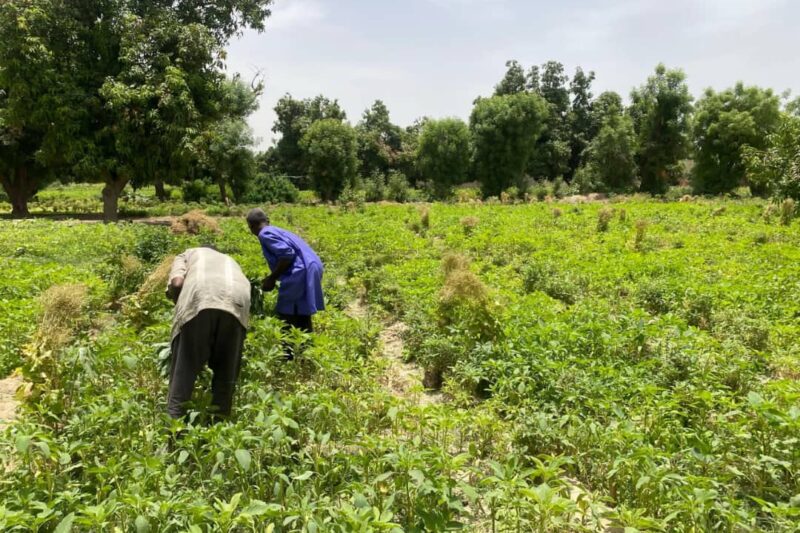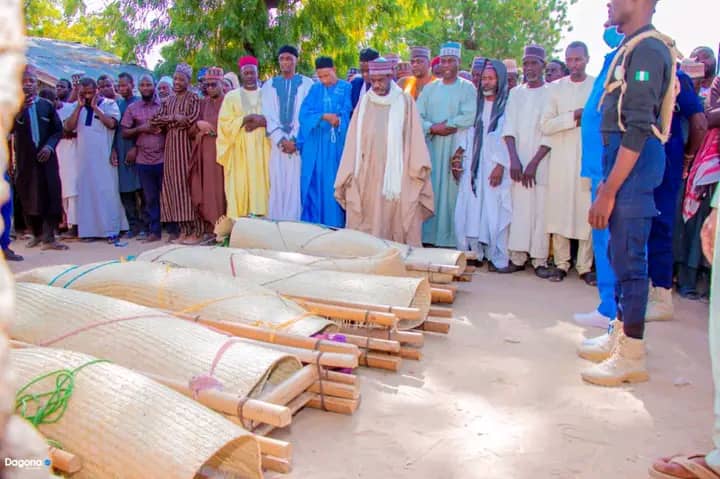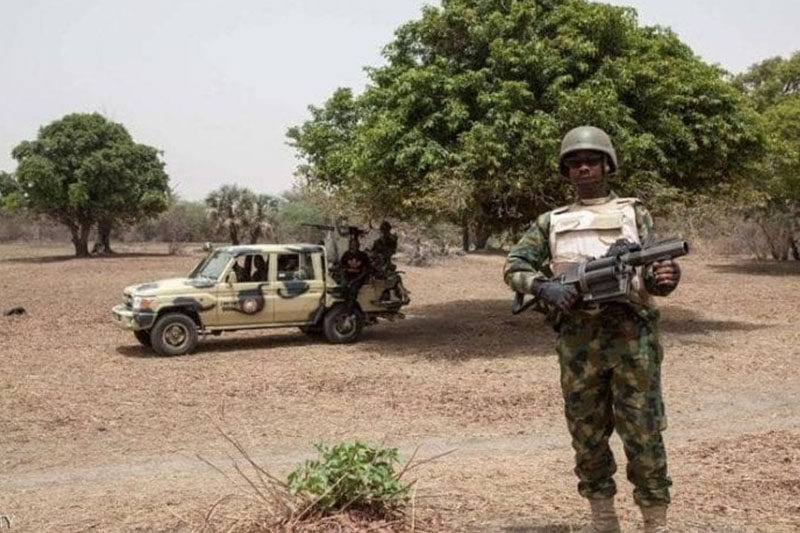Many farmers in Borno State are still sceptical about the ravages of climate change, which is a threat to populations, livelihoods and the health of the environment.
As the rainy season approaches, usually from June to September, farmers in Borno State in Nigeria’s northeast are hoping for another bumper harvest.
But agriculture specialists are encouraging them – more than 70% of the population in the state depend on agriculture directly or indirectly for their livelihoods – to consult experts on weather patterns and climate-smart farming practices to improve crop yields, increase profitability and reduce environmental damage.
They say many farmers – particularly smallholder farmers – are still sceptical about the ravages of climate change, including extreme weather events and the disruption of ecosystems, which threaten populations, livelihoods and the health of the environment.
Agriculture experts and agrarian institutions provide valuable insights on weather patterns, crop selection and farming techniques and, by ignoring their advice, vulnerable farmers could lose their crops and their livelihoods.
Not all farmers believe in scientific predictions
Isa Bukar Kumshe, a senior lecturer at the Mohammed Lawan College of Agriculture in Maiduguri, the capital of Borno State, said there was often an ingrained mistrust and suspicion of scientific findings, particularly among small-scale farmers.
“Some farmers use the advice given to them by experts or extension workers, but not all farmers believe in scientific predictions, especially among local small-scale farmers who have long-standing experience of traditional farming skills. This makes them more resistant to change and they are often loath to try new methods. This reluctance can lead to their downfall.”
Kumshe said it was important to build trust among farmers. One way of doing this was to employ agricultural extension workers to ensure improved agricultural business in the region.
“Agricultural extension services improve farmers’ livelihoods and food security by bridging the gap between research, technology and farmers and by providing technical advice, inputs and support for production.”
Kumshe said farmers in Borno State faced challenges – such as climate change, conflict, insecurity and poverty – which affected the way they operated.
“It is very important for local farmers and extension workers to have a strong relationship not only during the farming seasons but also beyond. This helps to change the attitude of the farmers. They are more open to scientific approaches and predictions.”
He said expert advice “sharpens a farmer’s existing skills and know-how”.
“Extension workers and agriculture experts help to educate and enlighten farmers on issues related to weather patterns, new methods and soil fertility for improved agribusiness.”
Climate change is real
Farmer Bakama Grema, 56, said: “Initially, I did not trust what the extension workers or experts said. It took me many years to start believing that climate change is real and that there was a need to start doing things differently.
“After I lost crops and experienced poor harvests for many years, I started to embrace and work with the experts. I followed their advice,” Grema said. “Things have got better and better in the recent years and, honestly, I wish I had listened to them earlier.”
Positive results
“When I recorded poor harvests for three consecutive farming seasons, I started to believe that I must be doing something wrong,” said Abubakar Usman, a smallholder farmer. “I discussed the challenges I was experiencing with agriculture extension workers and they introduced me to some new farming methods, including improved and climate-resilient seeds. I was amazed by the results.
“Last year, on the advice I received from an extension worker, I began using an improved variety of quality seeds for cabbages, onions and other vegetables. The results were great and we recorded a bumper harvest.”
Climate-smart agriculture
Babagana Umara Zulum, the governor of Borno State, has called on African leaders to transit from rain-fed agriculture to climate-smart and irrigation-based farming systems to guarantee long-term food security across the continent.
Addressing participants at the 6th African Regional Conference on Irrigation and Drainage held in Abuja from April 14 to 18, Zulum emphasised the urgent need for strategic reforms and investments in Africa’s agricultural sector.
“As a leader from a region facing both climate change and post-conflict recovery, I have seen firsthand how agriculture can restore dignity and rebuild communities. In Borno State we are laying the groundwork for agricultural transformation through sustainable irrigation initiatives,” he said.
Referring to the alarming state of Lake Chad, which has lost nearly 90% of its original size since the 1960s due to climate change, Zulum warned that this degradation posed a serious threat to livelihoods and regional stability.
“Once a source of life for more than 30 million people across Nigeria, Niger, Chad and Cameroon, Lake Chad’s decline is a stark reminder that irrigation is not merely important, but indispensable,” he said, citing data from the United Nations Environment Programme (UNEP).
He expressed deep concern over erratic rainfall patterns and warned that, according to the United Nations Food and Agriculture Organisation (FAO), continued unpredictability in rainfall could result in a 50% reduction in crop yields by 2030.
“This is not just a statistic – it is a direct threat to food security, public health and the future of millions of families.”
Zulum noted the increasing impact of climate change across the continent, including desertification, flooding, drying water sources and widespread ecological degradation.
He called for an inclusive and innovative approach from smallholder farmers, who produce a significant proportion of Africa’s food, to revitalise the sector.
Despite the challenges, Zulum said he was optimistic about Africa’s capacity to overcome adversity, highlighting the continent’s resilience and talent.
While commending development partners for their support, he urged them to align their interventions with Africa’s long-term aspirations.
“Irrigation is not merely about water,” he said. “It is about ensuring that a farmer in rural Mali, a herder in eastern Kenya, or a displaced family in the Lake Chad Basin can feed their children, live in dignity and build a future. It is about peace and prosperity.”
SHETTIMA LAWAN MONGUNO








